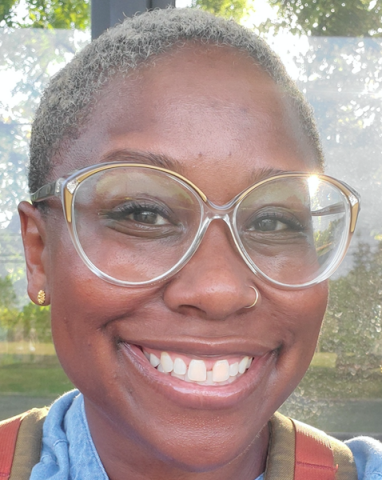January 28, 2020 | By monét cooper (she/her/hers), Black History Month Leadership Committee
When the Black History Month Leadership Committee at the Office of Multi-Ethnic Student Affairs (MESA) considers what it means to be Black at the University of Michigan, Black members of our community note that they examine themselves through many different lenses. Yes, Black people are a part of the campus community, the Michigan community, and the United States, but Black people are also a part of a larger diaspora of people, places, conversations, and histories. In the crafting of the 2020 Black History Month events and experiences we hope to honor our ancestors, our elders, each other, and ourselves. This impetus invites this month’s theme: (1619) Claiming, Celebrating, and Liberating #BlackHistoryIsAmericanHistory.
The committee takes their inspiration from the word “Sankofa,” a word in Ghana’s Twi language that translates to "go back and get it." It is the idea that we must return to our past in order to understand who we are in the present. In that spirit, this month has been planned by an intergenerational collective of U-M students, staff, and faculty from all disciplines who have offered their time, energy, and economic resources to craft a month where our foundation is positioned in Black collective joy and genius as much as the realities Black people continue to reckon with 400 years after the first enslaved ancestor set foot on this country’s soil. The committee hopes to bring our campus community into a reality that is explicity anti-racist, a site that celebrates the bodies and contributions of Black people, while combatting the anti-blackness that permeates Black lives.
The month is prefaced by the Rev. Dr. Martin Luther King Jr. Symposium where activist, scholar, and writer Angela Davis shared her observations on the past and present movement building in Black communities, the hidden figures of movement building — Black women — and the urgency of ending mass incarceration. Davis noted, “As King insisted in his Riverside address, a nation that continues year after year to spend more money on military defense than on programs of social uplift is approaching spiritual death.” Davis links this militarism with systems of mass incarceration and the racism that permeates the architecture of U.S. institutions. “Abolitionists have come to recognize that our advocacy has to identify much more than the institution of the prison for the site of abolition,” Davis reflected. “It is not possible to tear down prisons but leave everything else intact, including structural racism.”
We begin the month with the keynote that speaks to Davis’s words. Dr. Yusef Salaam, a member of the Exonerated Five and an activist against carceral systems, will be our keynote speaker. Dr. Salaam was 15 years old when he and four other black boys were wrongly accused and convicted of the 1989 rape and assault of a female jogger in what was called the Central Park Five case. Dr. Salaam spent 6-years and 8-months in jail. When the person who commited the crime came forward, they were eventually released along with Dr. Salaam’s best friend — Korey Wise, who wasn’t a suspect but had agreed to go to the police station with him for moral support and ended up being charged as well, spending 15-years in jail, the longest time of any of the five who were incarcerated. In his talk, Salaam will speak on his identity as an African-American Muslim in terms of what faith meant for his own journey at the intersection of race and faith in the criminal legal system and considering Martin Luther King Jr.'s crucial words: Where do we go from here? What is the work that we must do?
We encourage you to visit the Black History Month webpage and look at the current list of events on the calendar including the Black Business Students Association’s 44th Annual Alfred L. Edwards Conference & Gala, as well as the School of Education’s Black Lives Matter Week of Action at School. Come celebrate Black history with us, this is your history, too!

